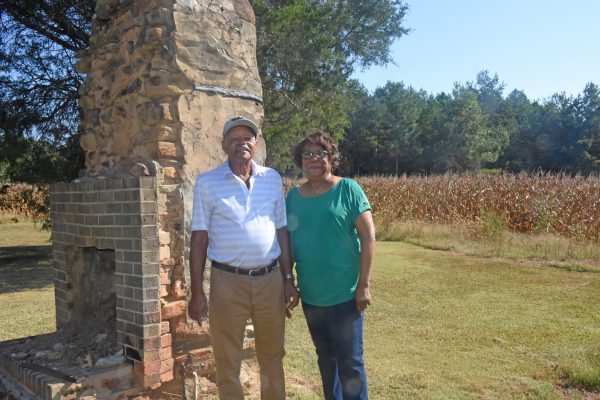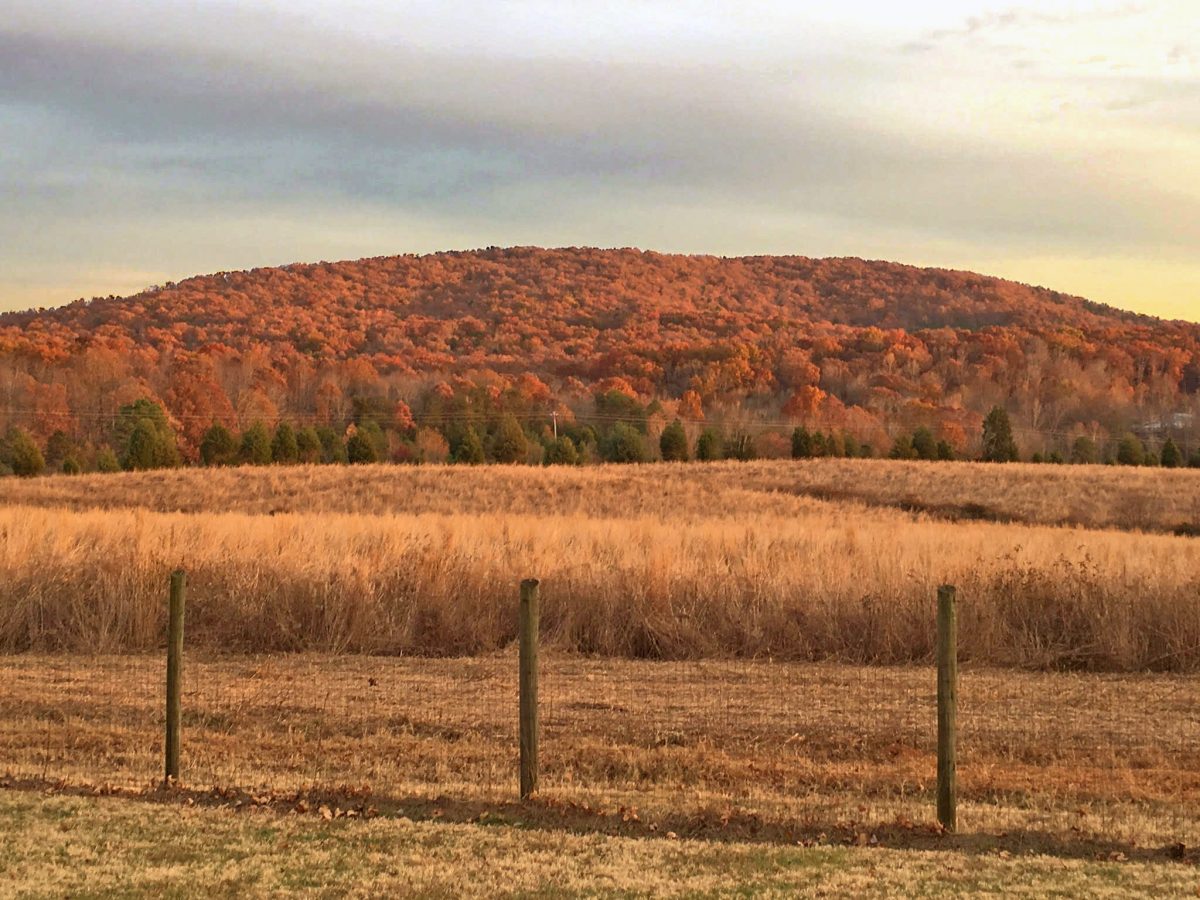Jerry and Jackcine Laughlin: Maintaining family ties to the land

This story is one of seven vignettes in the series Rural by Choice: Navigating Identity in the Uwharries.
The land at this particular crossroads in southern Randolph County has a storied history. It once belonged to Miles and Healy Lassiter, and some of it still belongs to their descendants, including Jerry Laughlin.
Miles was born into slavery circa 1777, but apparently this status wasn’t fully enforced. At the time of their marriage circa 1810, Healy was a free woman of color who already owned land in the area. Together, they eventually held 400 acres, a vast estate in a mountainous area inhabited by small-scale subsistence farmers.
Their fates and fortunes are linked to the area’s Quaker population, committed abolitionists who purchased people out of slavery and educated many others. In 1845, Miles requested, and was granted, full membership in the Back Creek Friends Meeting, becoming the only person of color in the state with such status at the time. As a reflection of his esteem among the congregation, he was “appointed to oversee and address issues of behavior and character,” according to Margo Lee Williams, author of From Hill Town to Strieby and Miles Lassiter: An Early African American Quaker from Lassiter Mill, Randolph County, North Carolina.
Jerry Laughlin grew up on this precious land, surrounded by extended family who valued hard work and education. After graduating from high school, he worked briefly in Newport News, Virginia, but often returned home on weekends, which is how he met Jackcine. A Richmond County native, she had moved to Asheboro after graduation.
 This is one of seven vignettes about people who choose to make their lives in rural areas outside of Charlotte. Read the other parts of “Rural by Choice” online.
This is one of seven vignettes about people who choose to make their lives in rural areas outside of Charlotte. Read the other parts of “Rural by Choice” online.
Jerry got a job with Western Electric (later Lucent) in Charlotte, retiring as a senior repair technician after 40 years. When they first moved into an apartment on Eastway Drive, Jackcine, a self-described country girl, found Charlotte a bit overwhelming. “I’d sit in the apartment with blinds closed,” she said. They soon bought a house on the city’s west side, got to know their neighbors, and made friends through their church.
“Charlotte did a lot for me,” Jackcine said. She got her driver’s license and worked at a neighborhood day care, then moved to a career with the library system. She worked at the main branch uptown, which brought her into contact with a wide array of people. She retired just before the recession forced scores of layoffs in 2010.
During their four decades in the city, they visited Jerry’s parents in the Uwharries most weekends. “I guess that makes me different from most people these days,” Jerry said, with pride. They both dreamed of relocating there one day.
“When we’d leave to come out here, we were ready,” Jackcine said. “And when it was time to go back (to Charlotte) on Sunday, we always dreaded it.”
They built a house next to the old homeplace in 2005, but didn’t live there full time until they retired in 2010. Jackcine works part time with special needs adults at Randolph Community College. Jerry still manages a parking lot in Charlotte during Panthers’ games and sometimes helps his brother-in-law at his restaurant in Asheboro, Magnolia 23. He also maintains an immaculate yard as well as the grounds at nearby Strieby Church.
A golfer, he enjoys hitting balls across the road into his stand of pines.
“Friends from Charlotte say, ‘We don’t know what the country is doing for y’all, but you sure look good!’” Jackcine said. But she notes that a few of their city friends don’t share their love of the country, even though they grew up in similar circumstances.
“You should never forget where you came from,” she said, shaking her head.